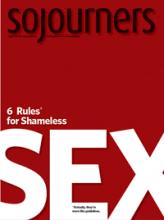Four years after Hurricane Katrina, Rev. Dwight Webster of Christian Unity Baptist Church in New Orleans is among the tens of thousands of people who have not yet moved back to the city. More than 7 feet of water stood in his house for nearly three weeks after the hurricane. He commutes from Oakland, California, to pastor his church, which was damaged but reopened within a year.
Webster knows many other pastors who are struggling to get back into their homes and churches in areas devastated by hurricanes Katrina and Rita—neighborhoods such as the Lower Ninth Ward, Gentilly, and New Orleans East. “There are still parts of the city that look like a war zone,” he said, “like somebody just set off a bomb.”
While the total population of New Orleans has returned to nearly three-quarters of pre-Katrina levels, according to a report this January, Webster sees many churches where only 40 to 50 percent of active members have returned. “There were some churches that came back together and couldn’t make it,” Webster said, because they didn’t have enough members, or members didn’t have many financial resources to contribute.
In such an environment, Webster and other pastors are working together through Churches Supporting Churches (CSC), an organization that formed shortly after Katrina under the leadership of pastors in New Orleans, along with C.T. Vivian, a civil rights activist and contemporary of Martin Luther King Jr.
Read the Full Article

